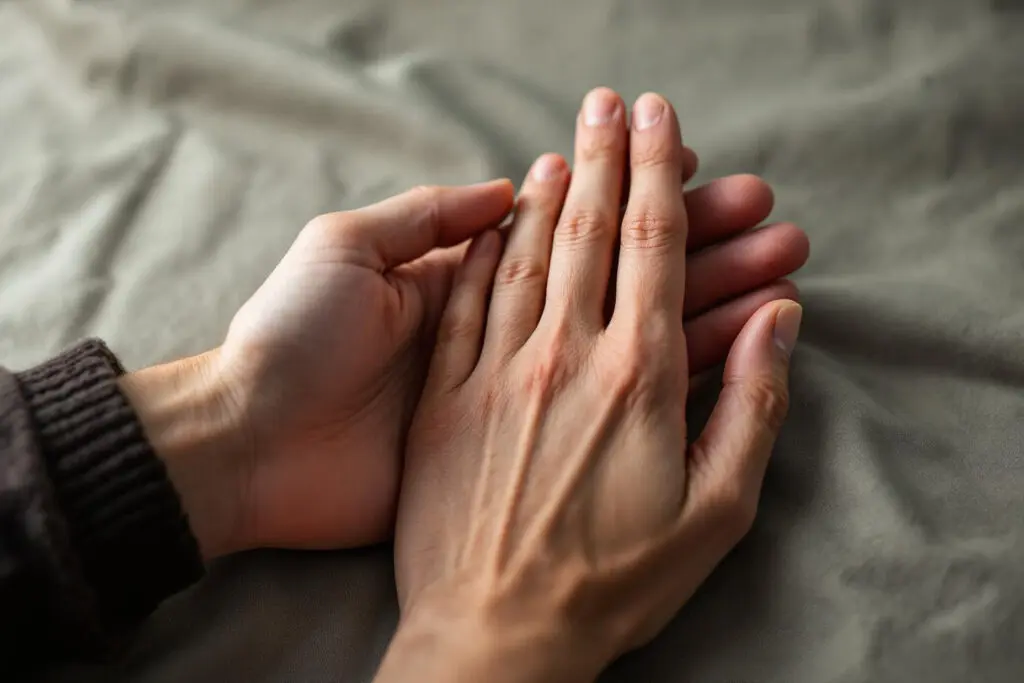It’s the question that hangs in the air on a third date, the one that gets nervously typed into a search bar at 2 AM. The body count. It’s just a number, but it feels so loaded, doesn’t it? Weighted down with history, judgment, and a whole lot of assumptions. As a woman, I’ve had this exact conversation more times than I can count—over brunch mimosas, on late-night calls with friends, even with the men I’ve dated. And if you’re here for a simple yes or no answer to do women care about body count?, I have to tell you, it’s just not that easy. The real answer is far more interesting.
Here’s the thing: the number itself is almost never the actual point. It’s a single, lonely data point that we use to try and sketch a picture of a person. It becomes a stand-in for their past, their values, their potential as a partner. But is it accurate? And what are women really trying to uncover when this topic comes up? Let’s pull back the curtain and get to the definitive truth, dissecting everything from the psychology to the double standards.
More in Dating Specific Types Category
Key Takeaways
- The actual number? It’s usually not the real issue. For most women, it’s about what that number might hint at regarding a man’s character, emotional maturity, or patterns in relationships.
- The deep-down concerns aren’t really about the sex. They’re about practical things: sexual health, his ability to commit, and the way he views the women he’s been with.
- Honesty is everything. How a man talks about his past is a million times more important than the number itself. Lying about it is a way bigger red flag than any number could ever be.
- Extremes on either end can raise questions. A super high number might make her wonder about stability, while a very low one can sometimes bring up questions about experience or social dynamics.
- Every woman is different. Her own history, her values, and what she wants in a relationship will shape her perspective more than anything else.
So, Is There a “Magic Number” We’re All Secretly Judging?
Let’s just kill this myth right now. There is no secret memo, no universal number all women have agreed is “perfect.” Life is messy. Attraction is messy. It doesn’t work that way. The whole idea of a “magic number” is a fantasy because it ignores the single most important factor: context.
Seriously, think about it. A 35-year-old man with 20 partners tells a completely different story than a 22-year-old with 20 partners. A guy whose number is higher after a decade in an open relationship is not the same as a guy whose number comes from a string of one-night stands. The number is just a number. The story behind it is what gives it meaning.
I have a perfect example. A close friend, Sarah, was casually seeing two different men and couldn’t figure out who she liked more. One guy, Alex, was 28, sweet as can be, but had only ever been with his high school sweetheart. They’d been together for years before it ended. The other guy, Ben, was this magnetic, exciting man who casually mentioned his number was “somewhere in the 40s.”
Sarah’s problem wasn’t “low number good, high number bad.” With Alex, she worried. Was he too inexperienced? Would their desires match up? She felt this unwanted pressure to be his teacher. With Ben, she had the opposite fear. Could this guy ever settle down? Was she just going to be another story he told? Was he even available for something real? For both men, the number just opened the door to more questions. It wasn’t the final answer.
If Not the Number, What Are We Actually Worried About?
This right here is the heart of it. When a woman brings up a man’s body count, she’s not trying to be a judgmental librarian of his past. She’s being a detective. She’s looking for clues about who he is today and what a tomorrow with him might look like. The number is just one piece of evidence, and frankly, it’s often misinterpreted. The real concerns are so much deeper.
Is This Just About Insecurity and Comparison?
Okay, let’s be real. Sometimes, a tiny part of it is. We’re all human. The green-eyed monster can be a jerk. Thinking about your partner having a whole sexual history with other people can make anyone feel a little shaky for a second. Will I be as good? Will he compare me to them?
But for most mature women, that’s a fleeting thought, not a deal-breaker. It’s a little flicker of insecurity that gets snuffed out by a real connection and trust. If a woman is truly obsessed with a man’s past, it’s more likely a sign of her own insecurities than a real problem with his history. For the rest of us, it’s not about competing with ghosts. It’s about getting to know the person right in front of us. The actual worries are way more practical.
What Does a High Body Count Suggest About His Character?
We’re in the land of suggestion here, not hard facts. A high number doesn’t make a man a villain. But it can point to certain patterns that might not mesh with a long-term relationship. A woman might be subconsciously asking herself a few things:
- Can he commit? If his past is a revolving door of short-term flings, it might suggest a fear of getting close or an inability to stick around. Is he always searching for something new, or has he just been waiting for the right fit?
- How does he see women? This one is huge. Is there a chance he views women as points to be scored rather than as people? A high number can, fairly or not, trigger the fear of being seen as disposable, just another body.
- Is he emotionally okay? Sometimes, a high number isn’t about confidence; it’s about avoidance. Is he using sex to numb out or fill a void? It can be a sign that he’s impulsive or hasn’t spent much time looking inward.
Of course, these are just what-ifs. A high number could also just mean he’s a confident guy who enjoys sex and was living his single life to the fullest. The point is, the number brings up these questions. The answers to these questions are what matter, not the number itself.
How Important is Sexual Health in This Conversation?
This is probably the most practical and non-negotiable piece of the puzzle. From a logical standpoint, more partners means a higher risk of exposure to STIs. That’s not a moral judgment. It’s just math.
A woman’s concern here isn’t about shaming. It’s about protecting her own body. A man with a high body count who is dismissive about sexual health is a walking red flag. If he avoids talking about it or hasn’t been tested in years, that’s a problem. But a man who says, “Look, I’ve had a number of partners, so I’m incredibly serious about my health. I get tested regularly and am happy to show you my recent results,” is showing massive respect and maturity. That responsible attitude can completely erase any concern his number might have raised.
Does a Man’s Honesty About His Past Matter More Than the Number Itself?
One hundred percent. Yes. Absolutely.
The number—2, 20, or 200—is practically meaningless compared to his honesty. The way a man handles the conversation reveals so much more than his answer. A lie is a betrayal. A high body count is just a fact of his past.
I once dated a guy who was an open book about everything except his past relationships. When the topic came up, he’d get slippery. He wouldn’t lie outright, but he’d deflect with a joke. “A gentleman never tells,” he’d say with a wink. For me, it had nothing to do with a number. It was his refusal to be straight with me that became the problem.
His unwillingness to be vulnerable made me feel like he was hiding something. It created this little seed of distrust that started to grow. What else wasn’t he telling me? His secrecy became a crack in our foundation, and the relationship fell apart. I still don’t know his number, and I don’t care. His inability to have an honest conversation was the real deal-breaker.
What’s the Deal with the “Low Body Count” Concern?
It seems backward, but just as a high number can raise an eyebrow, a very low one can, too. This isn’t about shaming inexperience. It’s the same detective work, just looking for a different set of clues.
Are We Worried About Inexperience?
For some women, sure. Sexual compatibility is important. If a woman is very experienced, she might worry that being with a partner who isn’t will be frustrating. She might not want to be a teacher.
This isn’t a slight against his character. It’s just an assessment of compatibility, like figuring out if you both want kids. Some women won’t mind at all and might love the idea of exploring together. Others might see it as a hurdle. It’s all about personal preference.
Does It Signal Something About His Social Skills or Desirability?
This is a tougher question, one many women might not even admit to asking themselves. But if a man has reached a certain age with little to no experience, the question why? can pop up. Is he painfully shy? Does he have trouble connecting? Is there some reason other women haven’t been interested?
Now, it’s vital to say this is often a totally unfair assumption. There are so many good reasons for a low body count.
- He might have just spent ten years in a loving, monogamous relationship.
- He could be a “demisexual,” meaning he needs a deep emotional connection before he even feels sexual attraction.
- Maybe he was justfocused on his ca buildingreer career or getting through school.
- He might just be incredibly selective, waiting for something meaningful instead of settling for casual flings.
A smart woman getsgs.
A smart womows this. She isn’t a red flag. But it does invite a conversation. The key for a man in this situation is to own his story confidently. If he can explain his experience level without shame, any initial worries will likely vanish.ence level. If he can do that, any initial, unfounded concerns will likely disappear.
How Do Societal Expectations and Double Standards Play a Role?
It’s impossible to have this conversation without acknowledging the giant elephant in the room: the societal double standard. For centuries, a man with a high body count has been labeled a “stud,” a “player,” or a “conqueror”—terms often tinged with a sense of admiration. A woman with the same history, however, has been saddled with derogatory labels.
While culture has certainly progressed, the echoes of this double standard still linger. This can influence how a woman views a man’s number in complex ways. She might consciously reject the double standard but subconsciously still be affected by it. Research from institutions like the Kinsey Institute at Indiana University has long explored the complexities of human sexuality and how societal norms shape our attitudes. These ingrained ideas can cause a woman to view a man’s extensive sexual history as a sign of his social value or desirability, even while simultaneously worrying about what it means for her as a potential partner.
Furthermore, a woman’s own sexual history can play a significant role. A woman with a higher number herself may be far less concerned with a man’s past than a woman with very little experience. It’s a classic case of perspective. At the end of the day, we are all products of our culture, and ignoring these powerful, often invisible, forces would be disingenuous.
So, How Should You Actually Talk About This?
Given the sensitive nature of the topic, the approach is everything. If and when this conversation comes up, navigating it with grace and respect can make all the difference. Timing, tone, and reciprocity are your best friends here.
If you’re the one being asked, or if you’re the one asking, here are a few guidelines to make the conversation productive rather than destructive:
- Don’t Make It a First Date Topic. This is not small talk. This conversation belongs in a space where a baseline of trust and mutual respect has already been established. Broaching it too early can feel like an interrogation or a superficial judgment.
- Frame it with ‘I’ Statements. Instead of “What’s your number?”, which can feel accusatory, try something like, “I feel like we’re getting closer, and I’ve been thinking about how our pasts shape who we are. I’m open to talking about past relationships if you are.” This invites a conversation rather than demanding a confession.
- Be Prepared to Share. If you ask about his past, you must be willing to be equally open about your own. This isn’t a one-way street. Vulnerability should be reciprocated. It fosters trust and shows that you’re not placing him on trial.
- Focus on the Lessons, Not the List. The most meaningful part of this conversation isn’t the number; it’s what was learned along the way. Ask better questions. Instead of “How many people have you slept with?”, try “What did your most significant past relationship teach you?” or “What are you looking for in a partner now that’s different from what you looked for in the past?” These questions get to the heart of a person’s character and emotional maturity.
The Real Answer is More Complicated (and Simpler) Than You Think
So, after all this, what is the definitive answer to the question, “Do women care about body count?”
No, we don’t care about the number.
Yes, we care deeply about what that number might tell us about you.
We care about your honesty. We care about your health and your respect for our health. We care about your capacity for commitment and your ability to form a deep, meaningful connection. We care about how you talk about the women of your past. We care about your emotional intelligence and your self-awareness.
The number is nothing more than a crude and often inaccurate tool used to try and measure these qualities that actually matter. It’s a shortcut that often leads us down the wrong path. A high number doesn’t make you a bad person, and a low number doesn’t make you a good one. You are not the sum of your past sexual encounters. You are a whole, complex person, and any woman worth her salt knows that.
The definitive answer is that women don’t care about a number written on a piece of paper. We care about the character of the man standing right in front of us.
FAQ – Do Women Care About Body Count

Do women care about a man’s body count?
Women generally do not focus on the actual number, but rather on what that number might indicate about his character, emotional maturity, and values. The emphasis is on honesty, health, and how he talks about his past.
Why is the number of past sexual partners not the most important factor for women?
The number is often just a surface detail; women are more interested in understanding a man’s character, commitment readiness, emotional health, and how he perceives women based on his past experiences.
What should I consider when talking about my past relationships with a woman?
If the conversation arises, focus on honesty and mutual vulnerability. It’s best to discuss what you’ve learned from your past and what you’re looking for now, rather than just the number of partners.
How do societal double standards influence perceptions of body count?
Society has historically praised men with high numbers as ‘studs’ and stigmatized women for the same. These ingrained norms can affect how women view a man’s sexual history, often unconsciously.
What is the most practical concern women have regarding a man’s body count?
The most practical concern is sexual health, including the risks of STIs. Women appreciate honesty about testing and health practices more than the number itself.




